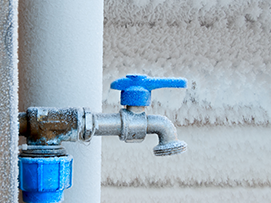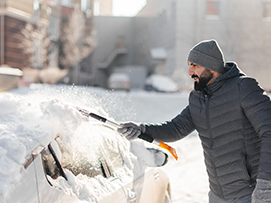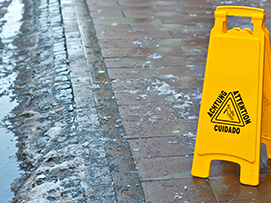Winter Weather Safety Advice
With severe winter storms becoming increasingly commonplace, much of the country will more commonly see freezing temperatures, dangerous snow, and serious safety hazards throughout the winter storm season. The PosiGen team wants to make sure you and your families are as safe as possible during this time. Here are a few pieces of winter weather advice from our own director of safety, Safety Mike.
Winter Weather Advice For Safeguarding Your Home
In addition to the energy efficiency tips to manage your bill, it’s also important to safeguard your home during freezing temperatures. Use the below as a checklist to effectively winterize your home.

-
Run off any outdoor irrigation systems and disconnect garden hoses, as these can freeze and cause damage.
-
Ensure outdoor and exposed pipes are insulated both outside and in attics, crawl spaces and under cabinets. Easy ways to do this include, wrapping pipes with insulation sleeves, pool noodles, or fabric to protect them from frigid air and ice. When in doubt, contact a license plumber or other licensed professional.
-
Overall, you’re looking to protect your pipes. If you are riding out freezing temperatures at home, set your faucets to a slow trickle. Moving water is water that is hopefully not freezing in your pipes. If you are planning to be away from your home for an extended period during the cold weather, consider draining your pipes. Home improvement series, ‘This Old House’, has a very useful video on the process. As always, when in doubt, contact a license plumber or other licensed professional.
Winter Weather Advice to Stay Safe When Going Outside
Our next piece of winter weather advice involves heading out into the frigid temps. While it is best to avoid prolonged exposure to dangerous temperatures, we understand that you may need to go venture outside during this time.
If you do go outside, it is important to protect your body to prevent cold stress in the form of hyperthermia or other health complications. The below tips are a great place to start if you’re going to be heading outside.

- Wear clothes meant for cold, wet, and windy conditions. Dress in loose-fitting layers to adapt to changing temperatures. Wear a hat, socks, shoes, gloves, and outerwear to keep you dry.
- Try to go outside in pairs so you can spot danger signs in each other before they become an issue.
- Drink plenty of warm, sweet beverages (sugar water, sports drinks) but avoid caffeine (in coffee, tea, sodas, or hot chocolate).
- Take breaks often, in a heated area, to warm up. Get medical help right away if you or anyone you’re with has symptoms of hypothermia. These include shivering, fatigue, loss of coordination, confusion or disorientation.
- Be aware you are at higher risk for cold stress if you take certain medications, are in poor physical condition, or suffer from diabetes, hypertension, or cardiovascular disease. Follow the advice of your medical professional and take additional precautions as needed.
Winter Weather Advice to Prevent Slips and Falls
According to the CDC, almost 1 million Americans are injured annually from falling on ice and snow. Protecting yourself and those around from fall-related injuries is vital winter weather advice during cold temperatures.

- Practice good housekeeping to prevent falls in the workplace. This includes, keeping walkways and paths clear of water, snow, ice, oils, etc., to reduce slippery conditions.
- Place signage or barricades around slippery conditions to alert personnel in the area until it can be cleaned up.
- Secure floor mats or other materials that need to be on the ground, so they do not shift when individuals walk on them.
- Wear the proper footwear for the conditions. Clean your shoes when possible to avoid slipping. Footwear with good tread makes better contact with the walking surface, which leads to less of a chance of a slip.
- Walk like a penguin. Take small concise steps when walking, this will help when slippery conditions present that you cannot avoid. Taking larger steps can lead to your balance being thrown off, resulting in a slip.
- Place down salt on icy areas. During winter seasons, always assume you are walking on black ice, and be careful. Pro tip - if you do not have ice melt salt, you can use table salt. Since the crystals of table salt are smaller than those of ice melt, it will require more salt to cover the areas but it can be used in an emergency.
While these tips are helpful, it is important to first and foremost keep up-to-date on weather conditions and to follow the guidance of your local officials during dangerous weather conditions.
Winter Weather and Solar Panels
PosiGen solar panels are made to withstand winter weather conditions. The solar panels will continue to produce power even if it's cold. Ready to go solar? Get in touch with our team today, to learn more about leasing solar panels.
